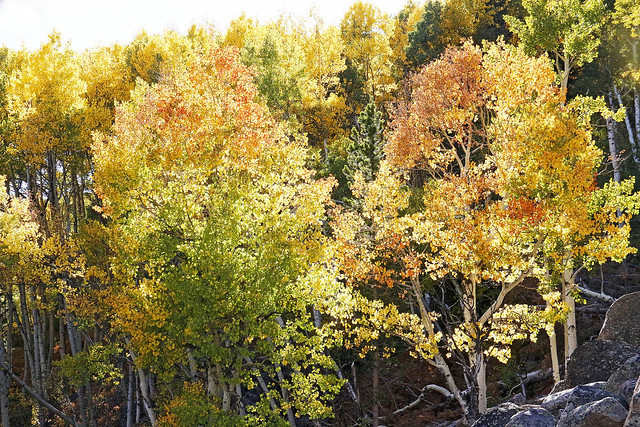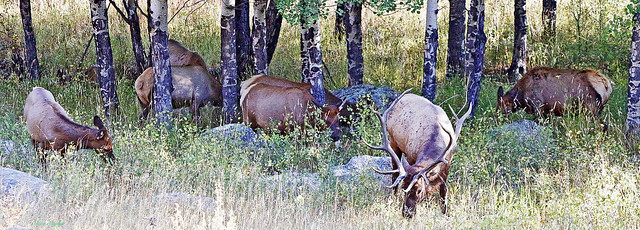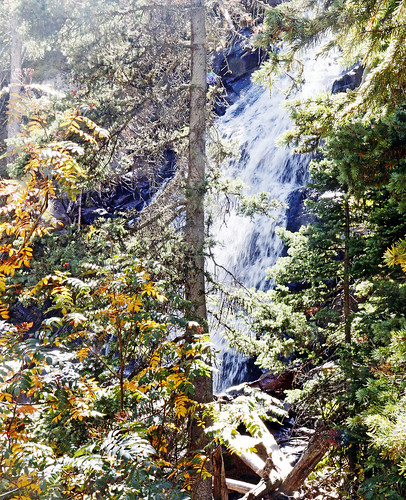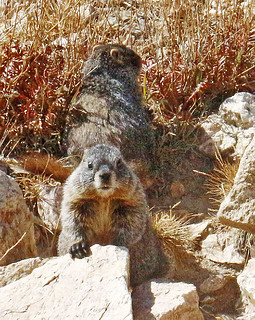
Between trying to stay employed, and thus bouncing around jobs and not always getting the vacations I'd like even as contracting newspapers make that tougher, I like visiting our western National Parks as part of those vacations when I grab them.
With this summer's drought and heat out in the southwest, the aspens at Rocky Mountain National Park were weeks-early beautiful. I'll take the beauty even while noting the drought.

That said, I've read more and more in recent years — including news stories about sexual harassment in the National Park Service — about how superintendents at major parks, especially the ones like Rocky that are filled with charismatic megafauna, and often with charismatic flora and geology as well, have become bureaucratic kingpins running miniature fiefdoms.
Well, so it was at Rocky.
 Just because it was a certain date on the calendar, water was turned off in mid-September at both the Alpine Visitor Center and the restrooms and service area at the Bear Lake trailhead parking center.
Just because it was a certain date on the calendar, water was turned off in mid-September at both the Alpine Visitor Center and the restrooms and service area at the Bear Lake trailhead parking center.Now, the Alpine Visitor Center is above 11,000 feet. It's arguable that, even with the ongoing unseasonably warm weather, park staff was worried about ground freeze problems already.
But Bear Lake? Gimme a break. It's only at 9,450 feet. Even in normal weather, you're not near to worrying about ground freeze yet in mid-September. (Estes Park, at about 7,500 feet, has an average low of 40 degrees during the time I was there.) And, shutting off the water is complicated by Rocky pushing people to ride the shuttle buses.
Yet, at neither of the east side visitor centers was it mentioned that water was turned off. This on two days when it broke 75 degrees at Bear Lake and pushed 85 at the 7,500-foot level.
 |
| Marmots want to know why the water's shut off. |
First, why should I have to do that? Second, what if the vendor ran out? Then, we'd be back at square one.
First answer to the whole schmeer of questions? Don't shut off the Bear Lake water until Oct. 1.
Second answer? Don't shut it off at the same time every year; stop being bureaucratic. Instead, actually follow the weather forecasts.
Big answer? Maybe park superintendents need to be on a forced rotation from big parks every four or five years, like Methodist ministers.
For more pictures from this album, go here.
No comments:
Post a Comment